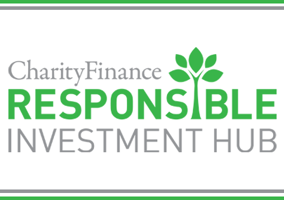The consultation was launched in January and asked charities to explain the barriers they feel they face to engaging with responsible investment. It did so in response to calls by a coalition of charities for legal clarity on whether they should align their investments with their charitable mission.
The consultation closed at the end of April and these responses have now either been published publicly, or have been made available by the organisations that made them to Civil Society News.
In its response, the Association of Charitable Foundations (ACF) quoted the Commission’s blog post announcing the consultation as saying: “Trustees have a duty to maximise the financial returns generated from the way in which they invest their charity’s assets”.
However, the ACF said that while on the whole the blog was “nuanced and reflective of the guidance”, this “assertion (which is sometimes expressed in parts of the foundation sector and beyond) does not reflect the content of CC14. Statements like these risk replicating and potentially exacerbating the uncertainty that exists in the sector.”
Law firm Bates Wells, which is supporting a coalition of charities in getting a legal ruling on charities’ responsible investment duties, also took issue with the same part of the blog.
It said: “In our view, it is very unfortunate that, on this point, the Commission’s most recent blog has compounded what we would respectfully suggest is a mistaken view of fiduciary duty with its reference to a duty to ‘maximise returns’, as we believe this is a gross oversimplification of the true legal and practical position.”
In response to the criticism, a spokesperson for the Charity Commission told Civil Society News that the part of the blog referred to was “focusing on financial investments – where the purpose of investment is to produce a positive, risk-adjusted financial return. We appreciate that this wording, if read in isolation, could be interpreted as an oversimplified statement of trustees’ duties.”
They added: “From our engagement with stakeholders, and following submissions received in response to the blog, we understand that some think that using the phrase ‘maximise returns’ is unhelpful. We are grateful to those that have raised this point, and will take this into account in our future communications on this subject.
“We will of course ensure that our policy development takes account of the position as set out in our guidance and the general law.”
Conflict between responsible investment and returns
The EIRIS Foundation agreed in its response that “a key barrier to more charities investing in line with their values and mission is confusion around trustee duties in this area, particularly around the requirement to maximise financial returns and a perceived potential conflict between that and responsible investment considerations.”
Despite saying many trustees believe in a conflict between responsible investment and maximising returns, ACF added that “there is no evidence that an ethical approach to investment is in conflict with achieving a strong financial return, and may actually enhance performance”. It said it would be “hugely helpful” if the Commission was “explicitly clear” about this.
New guidance welcomed
Despite this criticism, the responses did welcome the idea of new guidance from the Commission on responsible investment.
ACF called on the regulator to “clarify existing guidance and provide a statement to remove uncertainty.”
It said: “Ultimately, in order for the Commission to achieve guidance for charities on investing that is clear, permissive and future-facing, CC14 may need to be rewritten.”
Bates Wells said it should be “possible” for the Commission to update CC14 but that any new guidance needs a “solid foundation.”
It said that this is why it is pursuing its case for a new legal judgment, so that the Commission can use it as the basis of an updated version of CC14. It claims that the current legal framework, such as the Bishop of Oxford case, is inconsistent with the Commission’s current guidance.
Next steps
The Charity Commission spokesperson said that as well as gathering responses, the Commission had taken part in “a number of insightful roundtables, listening to the views of trustees and CEOs from a range of charities as well as engaging with investment managers and membership bodies.”
The regulator plans to set out its next steps in the summer, “informed by a detailed understanding of what charities consider to be barriers and challenges to investing responsibly, considering the best way forward to help trustees navigate this complex issue.”
Related articles











